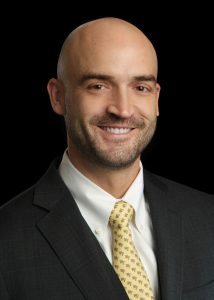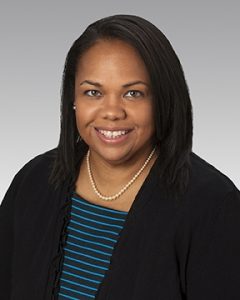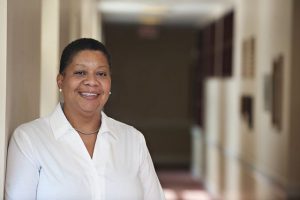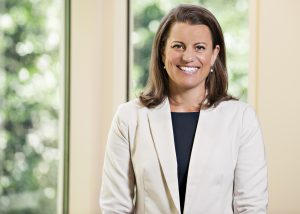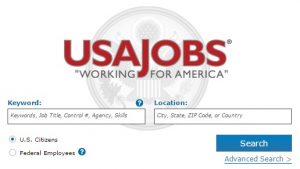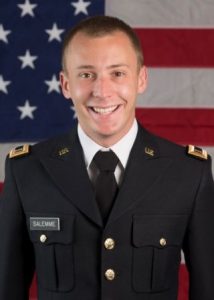Career Counselors’ Corner: Elizabeth Goodwin
Posted: August 8th, 2018
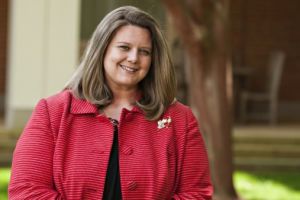 Why did you decide to work in career services?
Why did you decide to work in career services?
The job of employer outreach seemed like it was a good fit for my personality— I get a lot of fulfillment from meeting new people, working on behalf of my law school, and helping students. I didn’t understand how to best use all the career development tools available to me when I was a student, and didn’t really develop expertise in networking until well after I graduated. It feels good to pass that knowledge on now and help demystify the job search for students. I love making connections for them.
I also thought that my strengths in organizing and networking would benefit the office and the school. I graduated in 2008 from Wake Forest Law, at the start of the Great Recession. My career advisor was very helpful, but I wish that I could have gone to her and said “I want to do estate planning in Charlotte” and that she would have been able to give me names of a few alums in that practice and geographic area who had already agreed to help students. Part of my job now is to help find those “warm” lawyer contacts, and to educate them on how they can best interact with our students and grads. They usually can’t provide a job off the bat, but they can help connect students with others in the practice area, introduce them around to the local bar, and send any leads on jobs their way.
Having been here several years, I’m consistently impressed with the level of commitment and professionalism I see from my colleagues towards our students— we all truly want to do more than just help them land a job. We want to help them get on the path to a fulfilling career.
What advice do you wish you had received in law school?
Don’t treat law school like three more years of college. Approach it as an investment in your professional development, not solely as an academic exercise. That means do more than study. Grades are important, but so is learning how to network and applying those skills to build a professional network that will connect you with potential employers.
Work with intention towards a fulfilling legal career, and focus beyond the next essay or exam. Work just as hard to get that 2L summer job as you are working at writing that brief for LAWR. Also, work to build a brand and stand out from the crowd.
How do you define success in your current position?
As a counselor: I feel successful when the advice and guidance I give a student finally *clicks* and they feel like they are making progress in their job search and understand how all the methods of looking for a job work together.
As the employer relations coordinator: When I develop a relationship with an attorney who ends up engaging with the school or one or more of our students in a meaningful way.
What’s your greatest weakness?
I’m very risk averse, which has its benefits for sure, but sometimes risk is necessary for growth.
Also—this a horrible interview answer— but if I’m being honest, I’m pretty sure my internal clock is permanently set to five minutes behind everyone else’s (so I’m usually late).
What do you do when you are not in the office?
I joke that I am a professional volunteer. I used to work on political campaigns full time, so now I volunteer my political expertise to candidates I believe in during my spare time. I also serve on several community boards in Charlotte, where I live. I’m on the board of Generation Nation, a nonprofit that works to educate K-12 students on civic engagement. I’m the vice chair of the board of Carolina Voices, a community choral organization, and am actively engaged with our Arts and Science Council.
I’m also a movie buff, love to read, and have gotten caught up in the true crime fad we seem to be experiencing now— so I enjoy all the documentaries and podcasts like Making a Murderer, Staircase, and Serial.
What song would you sing at Karaoke?
I usually end up singing Steve Miller Band’s “The Joker” because I can’t think of anything else and it is pretty much the same three or four notes, so it’s hard to mess up. I’ve also been known to belt out some Carly Simon, Miranda Lambert or Britney. Oh and Wagon Wheel — either the OCMS or Darius Rucker versions.
